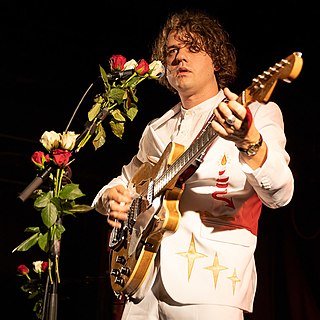A Quote by Lucinda Williams
I usually don't write about my life right when it happens. I process it, and I store it away. Then, when I get in the mood I pull the stuff back out.
Related Quotes
When I have just sat down and tried to write the lyrics of a song, usually about half of it sounds like bullshit. I just have to go away from something and come back to it again later. I do a lot of editing and switching around and putting little pieces together to get the right mood and personality, and it takes me forever to get a song finished.
Pain happens, but suffering is optional. When pain comes, make use of the experience, but do not wallow in it.
When you accidentally place your finger in a flame, it is supposed to hurt just long enough for you to pull it out.
If you think there is value in keeping it there, you will be a crispy critter. Pain is a minor element of life, unless you are indulging it.
Then it becomes suffering. Get the message and then get on with your life, which is far more about joy than sorrow.
A great day on tour would be if I would say a two-hour drive, so you can wake up and you don't have to leave right away. You can go get breakfast somewhere nice that someone recommends in the town, and it turns out to be good. Then you can kind of check out the town, someone might recommend you to a cool thrift store, a record store, a nice park or something. You can have some time to yourself.
When it became easy enough to do dairy online, then I just thought, "Oh, I'll start doing this. I'll put the parts online that aren't going to get me in trouble. I'll save the rest for myself." It became also this kind of self-therapy. I could write about stuff that was bothering me, or personal stuff. And the very personal stuff I could edit out. But it was kind of the catharsis of getting it out and writing about it, that made me think, "Okay, I see why people do this, why they keep these diaries." So I thought, "Well, let's see what happens when I post some of it."
I never write something and consciously embed political commentary or any other kind of commentary. I just try to get the characters into a room or out of a room, or onto the plane, or through the grocery store. The political stuff, the class stuff, the gender stuff, is in the air, it's in their interactions, because it's there for all of us.
Write a lot. And I mean a ridiculous amount. You have to write so much that you don't mind throwing away and changing things that you've written - which is the second thing you have to do. A lot of young writers are very precious about their words. Don't be - you've got to be ready to burn stuff. You're not as good as you think you are, at least not yet. The more you write, the faster you'll write, and the less you'll mind throwing stuff out.
My writing is of a very different kind from anything I've heard about. All this mythological material is out there, a big gathering of stuff, and I have been reading it for some forty- or fifty-odd years. There are various ways of handling that. The most common is to put the material together and publish a scholarly book about it. But when I'm writing, I try to get a sense of an experiential relationship to the material. In fact, I can't write unless that happens ... I don't write unless the stuff is really working on me, and my selection of material depends on what works.




































